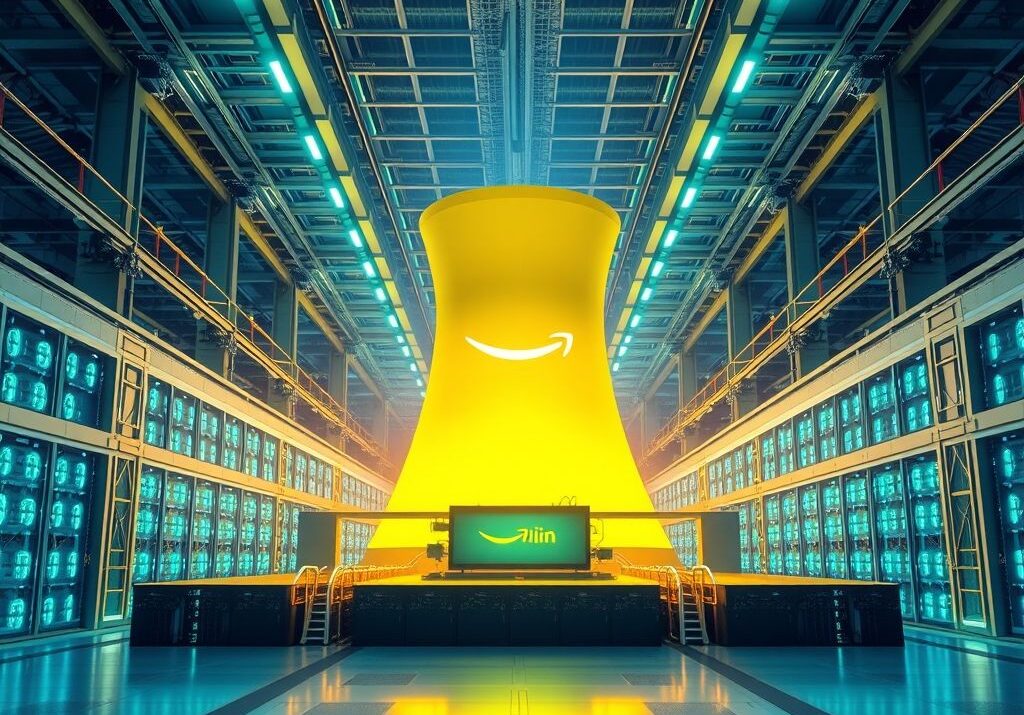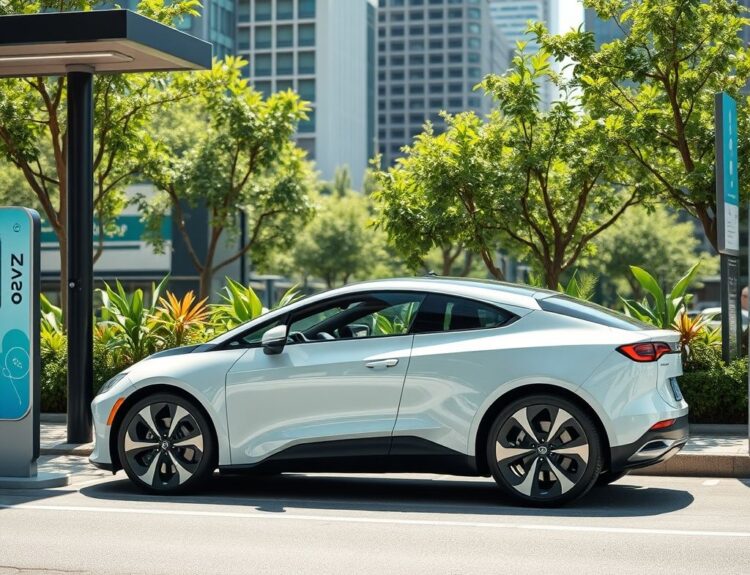So, you know how everyone’s been talking about the insane energy demands of AI? Well, it’s not just talk anymore. The big players are starting to make some seriously bold moves to keep the lights on – and I just stumbled across something pretty interesting.
Amazon’s hopped on the nuclear bandwagon. Yep, you read that right. They’ve signed a deal to leverage nuclear energy to power their AI data centers. (Saw it first over at CoinTelegraph: Amazon signs nuclear energy deal to power AI data centers).
This isn’t some small side project either. We’re talking about a significant commitment to a power source that, let’s be honest, has a bit of a reputation. But when you think about the sheer energy needed to train those massive language models and keep those data centers humming, it starts to make sense.
And Amazon isn’t alone. They’re joining a growing list of tech giants who are seriously considering (or already investing in) nuclear power to fuel their AI ambitions. Microsoft, for example, is also exploring nuclear options. As AI continues to explode, these companies are going to need a scalable, reliable, and (ideally) low-carbon energy source.
Why nuclear, though? Well, think about it. Solar and wind are fantastic, but they’re intermittent. Data centers need consistent power, 24/7. Nuclear offers that baseload power with a significantly smaller carbon footprint compared to fossil fuels. According to the U.S. Department of Energy, nuclear power plants produce more electricity than any other clean air source, generating nearly half of the nation’s clean energy. (U.S. Department of Energy – Nuclear Energy).
It’s a fascinating development, and it raises some interesting questions about the future of energy consumption in the tech world. It seems like this could be the start of a trend.
Key Takeaways:
- AI’s Hunger Games: AI is power-hungry, plain and simple. Companies are scrambling to find ways to feed the beast.
- Nuclear Renaissance? Nuclear energy is back on the table as a serious contender for powering the future of tech.
- Beyond Greenwashing: This is more than just PR. Companies need reliable, massive amounts of power, and nuclear fits the bill.
- Infrastructure Overhaul: Getting nuclear power to data centers will require significant investment in infrastructure.
- Debate Continues: The environmental impact of nuclear power (waste disposal, safety concerns) remains a hot topic of debate.
FAQ: Nuclear Energy and AI – What’s the Deal?
- Why are tech companies turning to nuclear energy for AI? AI development requires massive amounts of electricity, and nuclear energy provides a reliable, low-carbon source compared to fossil fuels.
- Is nuclear energy really a “clean” energy source? While it doesn’t produce greenhouse gases during operation, nuclear waste disposal remains an environmental challenge. It’s lower carbon that most alternatives and improving.
- What are the risks associated with using nuclear energy to power data centers? Major concerns include nuclear accidents and the safe storage of radioactive waste.
- How does nuclear energy compare to renewable energy sources like solar and wind for powering AI? Nuclear energy offers a more consistent and reliable power supply than intermittent sources like solar and wind.
- Are there any specific types of nuclear reactors that are better suited for powering data centers? Small Modular Reactors (SMRs) are gaining attention due to their flexibility and scalability.
- How will the increased demand for nuclear energy affect the cost of electricity? Increased demand could potentially drive up the cost of nuclear energy, but advancements in reactor technology could help to offset these costs.
- What regulations are in place to ensure the safe use of nuclear energy for powering AI data centers? Nuclear power plants are subject to strict regulations by agencies like the Nuclear Regulatory Commission (NRC) in the US, ensuring safety and security.
- What is the public perception of using nuclear energy to power AI? Public opinion on nuclear energy varies, with concerns about safety and waste disposal often influencing perceptions.
- Are there alternative energy sources that could potentially replace nuclear energy for powering AI in the future? Fusion energy is a promising long-term alternative, but it is still in the development phase.
- How will Amazon’s decision to use nuclear energy impact other tech companies and the energy industry as a whole? It could encourage other companies to consider nuclear energy, potentially leading to increased investment in the sector.






